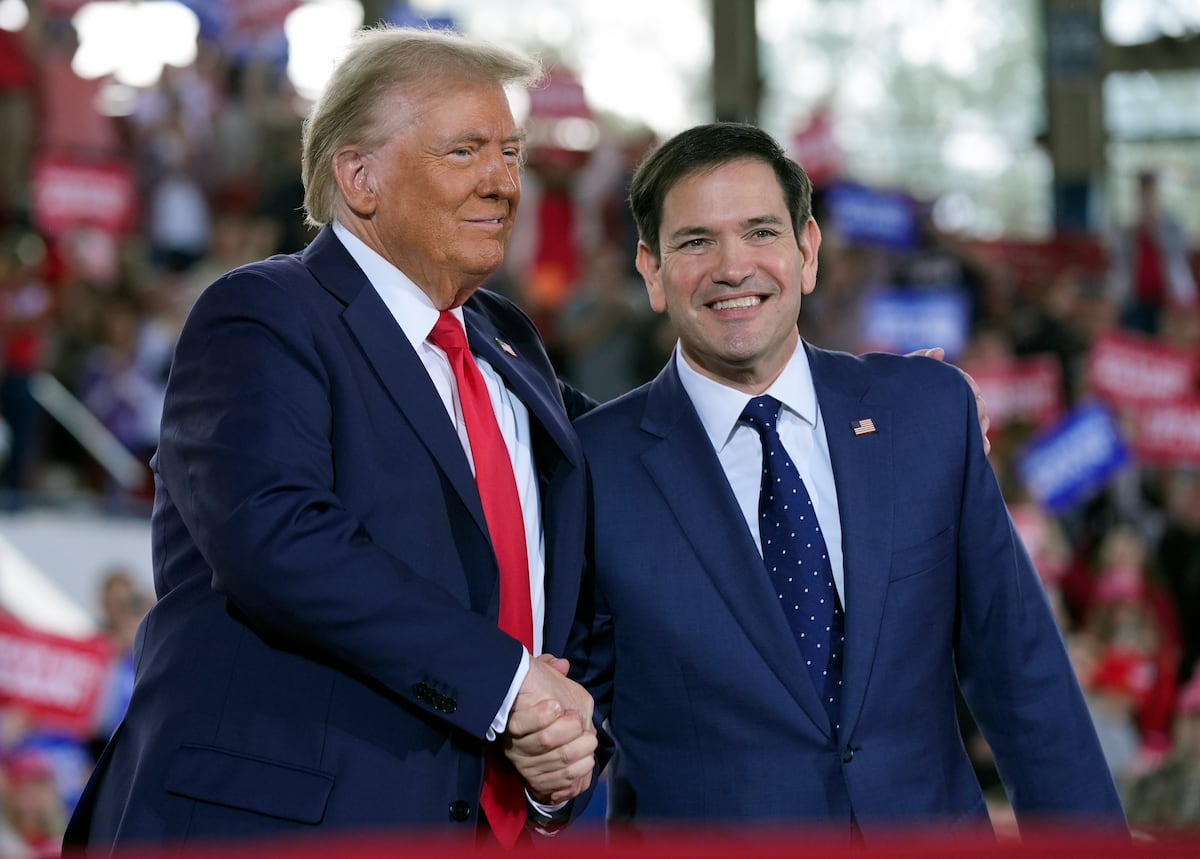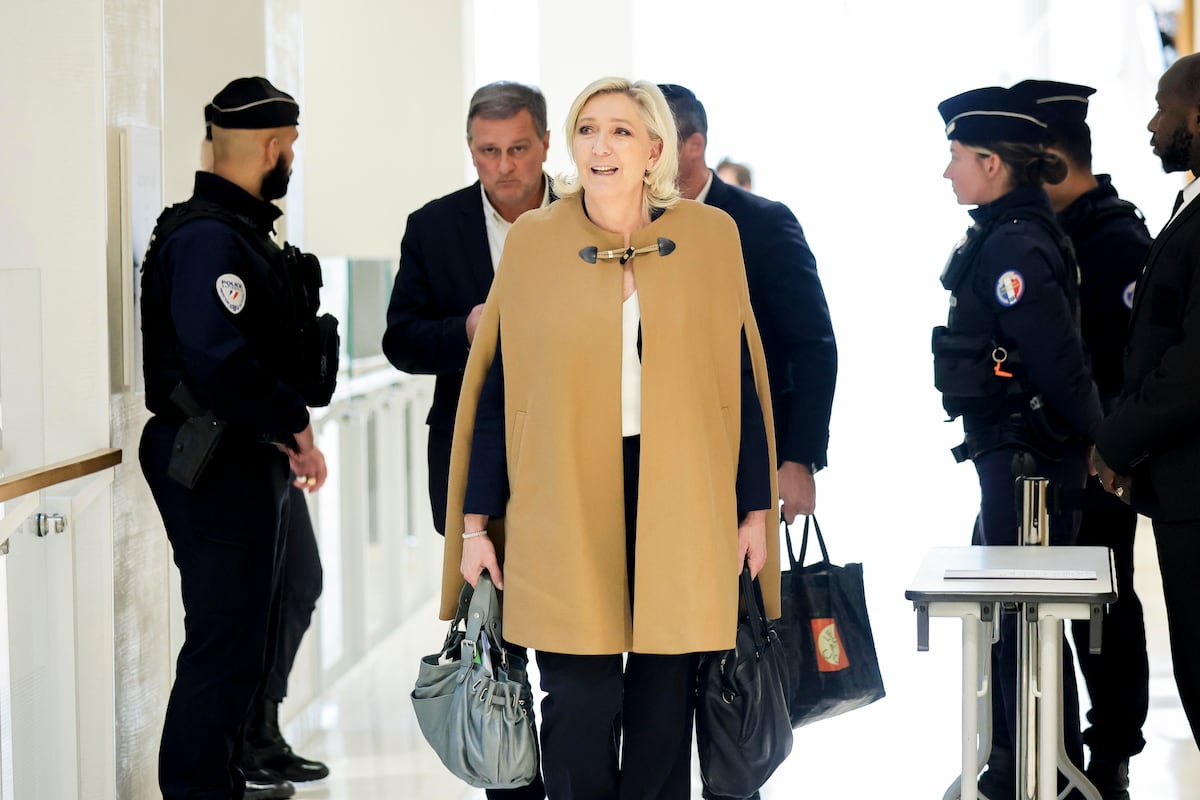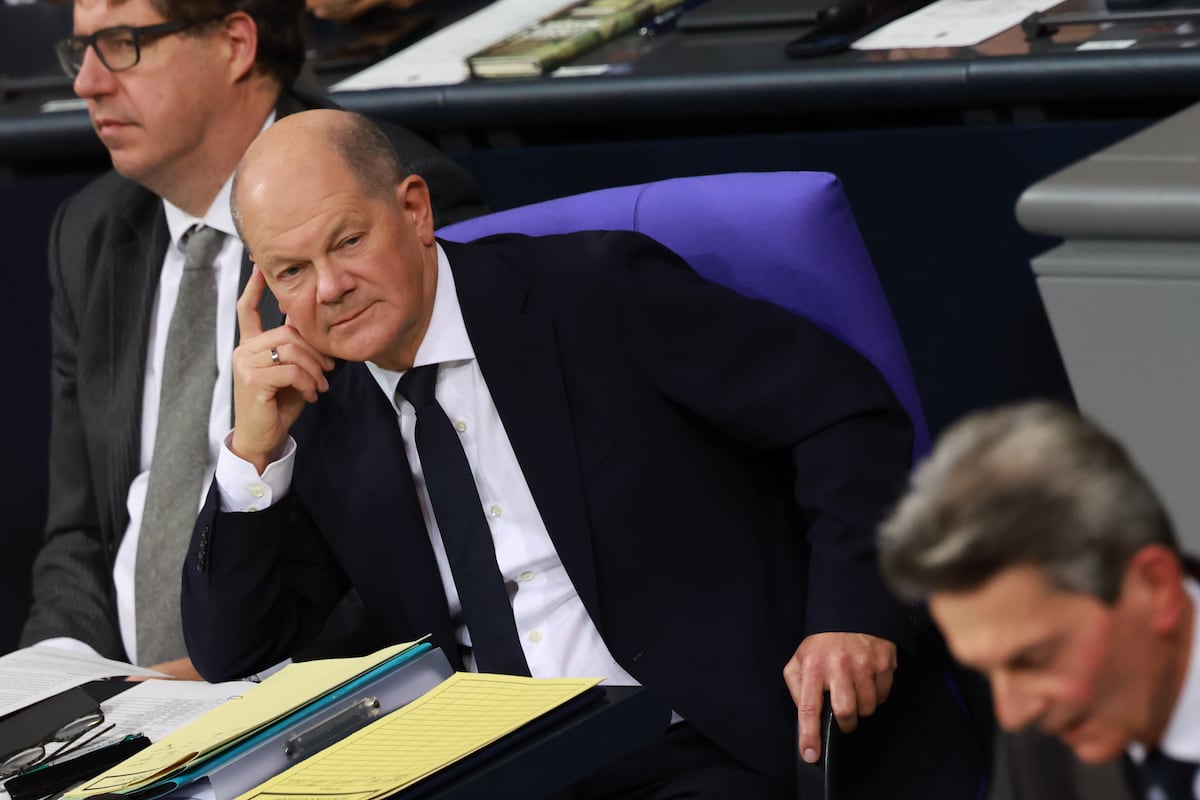Florida Senator Marco Rubio will be the future Secretary of State in the future Donald Trump Administration. The appointment, which was already rumored but which the president-elect confirmed this Wednesday, places at the head of United States foreign policy a hawk who is very tough on Iran or China, a country that has kept him under sanctions since July 2020. But Rubio is also a supporter of ties with Europe and promoted a law to shield the United States’ membership in NATO. Predictably, he will be the Secretary of State with the greatest personal interest in Latin America in decades: this son of Cuban immigrants, who speaks fluent Spanish, has spoken out in very forceful terms about the left-wing authoritarian regimes in the region, such as those in Cuba and Venezuela, against whom it defends the application of sanctions tooth and nail.
Rubio “will be a highly respected leader and a very powerful voice for our nation, a true friend to our allies and a bold warrior who will never be cowed by our adversaries,” Trump said in a statement announcing his selection.
The appointment joins that of Congresswoman Elise Stefanik as the next US ambassador to the UN, and that of Congressman Michael Waltz, a war veteran, at the head of the White House National Security Council to complete a hardline team to decide the foreign policy of the new era Trump 2.0.
Although, as the former ambassador to several Middle Eastern countries Ryan Crocker recalled this Tuesday in a telematic press conference organized by the Middle East Institute, the capacity for influence that any of them can exert in areas such as, for example, the relationship with Iran , will be relatively small. “The decisions are going to be made in the White House. The system will be centralized, not dispersed among various power centers. What will matter will be Trump’s positions. “He will be the one who decides.”
All in all, the appointment of Rubio, who will be able to exert great influence on Trump and his geopolitical vision, will be well received in most of the foreign ministries. The senator is very familiar with international relations as a member of the Foreign Relations Committee and the highest-ranking Republican on the Intelligence Committee in the upper house. During his time on Capitol Hill he has collaborated with legislators from both parties and has forged ties with representatives of governments around the world.
Rubio, who in 2016 contested, and lost, the Republican primaries against the real estate magnate in a very harsh manner – the now president-elect called the senator from Florida “little Marco”, and the legislator made fun of his “small hands” – , will inherit a world much more turbulent and dangerous than the one the Republican found when he took power for the first time in 2017. He will have before him two wars, in Ukraine and the Middle East, which his boss has promised to end in a single day, in the case of the first, and at full speed in the second.
Throughout his career, the Miami-born senator (53 years old) has been a supporter of American interventionism abroad. But that trend seems to have changed as his deep differences with Trump eight years ago have evolved first into a cordial understanding and then into a genuine affinity between the two. To the point that Rubio has been one of the most present politicians alongside Trump during the campaign. He was one of three finalists the former and future president considered for the vice president position, although he ended up choosing JD Vance.
Rubio, who began being highly critical of Russian President Vladimir Putin, voted this year against US military and economic aid to Ukraine. He has also declared that “it is necessary for this war to come to a conclusion.” Something that coincides with the position of his future boss, who assures that when he returns to the Oval Office he will force the tenant of the Kremlin and the Ukrainian president, Volodymyr Zelensky, to sit down to negotiate. A perspective that does not favor kyiv at all.
In the Middle East, Rubio has also shown himself to be a hawk. Regarding the war in Gaza, the senator of Cuban origin considers that the radical Palestinian militia Hamas “is 100% to blame” for the conflict that is being waged in the Strip and that has killed more than 42,000 Palestinians, many of them women and children. . He has been a constant critic of Iran, and an enthusiastic promoter of sanctions against the Islamic regime. He applauded Trump’s withdrawal of the United States from the nuclear agreement with Tehran signed in the final stretch of the Barack Obama era, and that he lifted some sanctions in exchange for Tehran freezing its nuclear program, and had criticized the unsuccessful attempts to revive it during the mandate. by Joe Biden.
Although Rubio’s great interest, and where he has focused his legislative activities in the Senate, is the containment of the rise of China, a country against which he has introduced numerous measures. As a member of the Congressional Executive Commission on China, he has investigated human rights abuses in the Asian giant and has been one of the promoters of a law to prevent the entry into the United States of Chinese products manufactured with forced labor. Uyghur minority.
It has also taken steps to prohibit electric vehicles manufactured using Chinese technology from benefiting from subsidies in the United States, and another series of measures to strengthen US industrial policy and make its supply chains independent from the Asian giant. Among other things, this year he declared himself in favor of again imposing 25% tariffs on Mexican steel, to prevent Beijing from using that route through the United States-Mexico-Canada Agreement to introduce its alloy into the US markets without penalties. In congressional hearings he has always been very incisive about the influence that the Government in Beijing exercises over ByteDance, the multinational owner of the popular social network TikTok.
The senator has also been very active in politics towards Latin America, especially towards Venezuela and Cuba. Regarding the regime of Nicolás Maduro in Caracas, in 2019 he already assured, when defending the harsh US sanctions, that “it is only a matter of time” before it falls: “the only thing we do not know is how long it will take and if it will be (a transition) peaceful or bloody.” After the July elections in Venezuela, Rubio issued a series of statements in August in which he recognized Edmundo González Urrutia, now exiled in Spain, as the legitimate winner of those elections.
Rubio was, along with Democratic Senator Tim Kaine, the promoter of a new law, approved in December 2023 in Congress, which prevents any president from unilaterally withdrawing from NATO, as Trump declared on several occasions that was his intention in his first mandate. The new measure establishes that the departure of the Alliance can only become effective if the Senate approves this presidential will by a two-thirds majority or Congress drafts and approves an exit law separately.
That bipartisan step, Kaine indicated at the time, “underscores the lengths Congress is determined to go to protect the relationship between the United States and NATO in the midst of Russian aggression and after years of criticism of the military alliance during the presidential term of Trump.” For his part, Rubio declared: “The Senate should maintain its oversight over whether or not our nation withdraws from NATO. “We must ensure that we protect our national interests and protect the security of our democratic allies.”
During the electoral campaign, the former president revealed that he had told another leader of “a large country” that if he did not meet the goal of dedicating at least 2% of his GDP to Defense, the United States would not comply with the principle of mutual assistance in case of attack. Rubio downplayed these statements and pointed out that “practically all presidents” have complained in one way or another about the countries’ failure to meet their obligations in military spending as partners of the Alliance.







